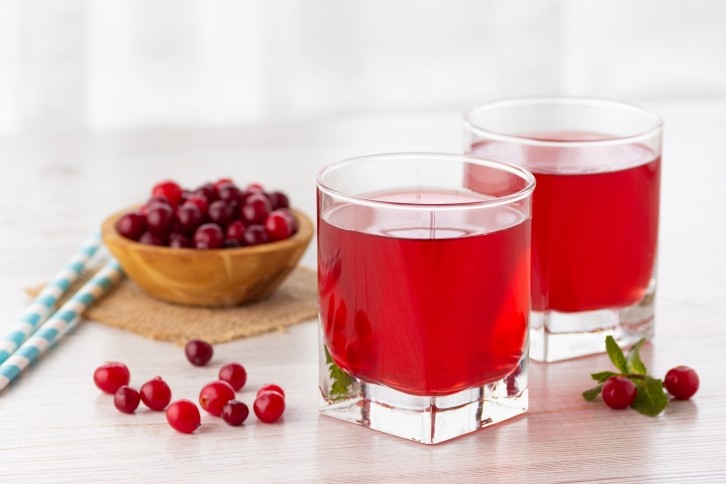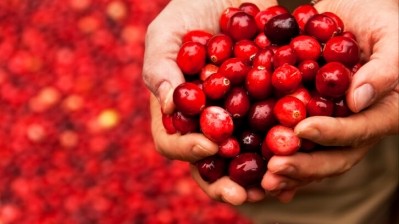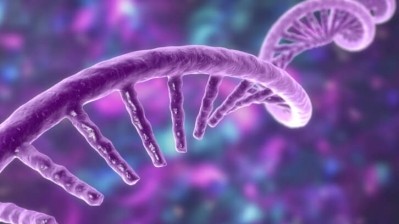Insights from Vitafoods
Prebiotic power: five-year research journey concludes “distinct effect” of cranberry polyphenols

Following the five-year journey of research conducted by his team at the university’s Institute of Nutrition and Functional foods, the results identified the benefits exhibited by the cranberry polyphenols as well as the mechanism of action, via the microbiota.
During his presentation in Geneva last week, Desjardins explained they have been studying over the last five years, and within the lab the last ten years, the effect of polyphenols on health with a focus on cranberry polyphenols.
The research has been supported by the German producer of flavours, raw materials, and functional ingredients, Symrise.
Desjardins explained: "This research looked at the effect of cranberry polyphenols on the gut microbiota using artificial human digestion models, including organoids within an in vitro model of human gut epithelium, as well as in vitro cell lines models. We also conducted animal models of metabolic disorders and a number of human clinical trials."
He emphasised that the beneficial effects of the cranberry polyphenols were found to be mediated at the microbiota/host interface. They were noted to modulate the microbiota and improve gut barrier function through interaction with specific keystone bacteria, such as Akkermansia muciniphila and Bifidobacteria.
In addition, the tannins were identified to have a critical involvement in mucin production within the gut, whilst cranberry procyanidins induced bifidogenic effects as well as improved mucosal butyrogenic guild.
He added: “There is a very distinct effect of cranberry polyphenols on gut health, and we think this treatment is at this interface between the host and the microbiota in the models we have studied.”
Polyphenol potential
It has been reported that polyphenols can reduce cognitive decline, stimulate the endogenous antioxidant network, reduce metabolic syndrome biomarkers and insulin resistance, as well as reduce risk of cardiovascular disease, reduce levels of LDL-cholesterol, and improve endothelial function.
But Desjardins noted that only 5% of polyphenols are usually absorbed to enter the phase I and II metabolism, due to their low bioavailability. Thus, it is still unknown whether the metabolites exhibit a beneficial activity to health. However, the remaining 95% have been noted to modulate the gut microbiota to achieve anti-microbial, iron-binding, and quorum sensing effects, actions Desjardins describes as ‘prebiotic-like effects’.
He highlighted recent changes to the list of compounds defined as prebiotics, currently described as ‘a substrate that is selectively utilised by a microorganism to confer a health benefit’. The last consensus statement from the International Scientific Association for Probiotics and Prebiotics (ISAPP) resulted in the enlargement of its meaning to incorporate phenolic and phytochemical compounds.
Desjardins explained: “Phenolics and phytochemicals are not per say a prebiotic but do have a prebiotic effect that can be quite strong”.
Journey of research
Desjardins spotlighted a study conducted by the team in 2016, whereby it was found that cranberry polyphenols prevented weight gain and improved glucose homeostasis in mice, through increasing Akkermansia spp. which inhabited the 1mm mucin layer of the gut epithelium. The team previously established the importance of this bacterial species, hailing it a “true symbiont of humans” due to its ability to produce mucus and SCFAs. He added that the strain has been found to exhibit anti-obesity properties; representing up to 4-5% of bacterial species in lean people.
He discussed a further study by his team, which demonstrated that the cranberry polyphenols were able to reverse insulin resistance and hepatic steatosis stimulated by a high fat high sugar (HFHS) diet in mice.
This led the group to conduct a further study in 2020, with the published results highlighting the polyphenol’s abilities to module microbial metabolic functions and niche ecology in obese mice. Further research established their additional ability to stimulate mucin production and goblet cell differentiation in mice.
Desjardins discussed the team’s latest research and the unpublished results from the study: “We were able to show, using a murin intestinal organoid model, that the polyphenol could module the differentiation of the stem cells. These stem cells were producing mostly goblet cells and Paneth cells. So again, we were able to show that these cranberry polyphenols could increase the production of mucin, and the differentiation of defensins and goblet cells.”
In addition, the results found that the polyphenols were able to modify the gut microbiotas of six human donors within an artificial model digestive system called M-SHIME, which utilised a mirrored model simulating the ascendant and transverse colon.
This followed a two-week treatment with 86.8mg cPACs/day of ‘prebiocran’. The α-diversity and microbial richness was improved whilst also maintaining the β-diversity; a measure of similarity between populations.
Desjardins described the further unpublished Metacann human trial study, in which 39 participants were administered polyphenols as well as the 'prebiocran' cranberry extract for four days. Urine and faecal samples were collated following this.
“We were able to show a very strong Bifidobacterium stimulation following the four days of treatment”, he hinted with regards to the soon-to-be published findings.














